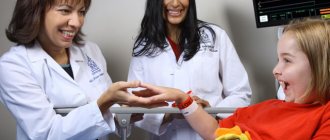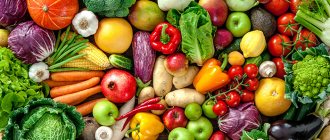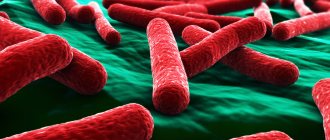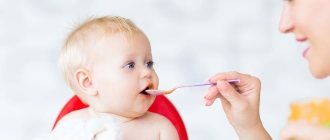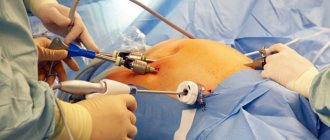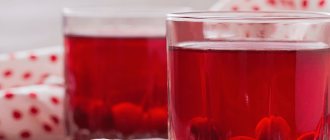Bacterial food poisoning in a child is also called intestinal infections - this is a large group of diseases whose causative agents can be bacteria and viruses. The most common infections are dysentery, salmonellosis, escherichiosis, campylobacteriosis, and yersiniosis. All people suffer from intestinal infections, regardless of age, often including young children.
Poisoning in children can be caused by eating poisonous mushrooms, which can retain their toxic properties after soaking, boiling, drying, salting, pickling and other processing methods. As well as poisoning from poisonous plants (monkshood, castor bean, bitter almonds, henbane seeds, belladonna berries, crow's eye, wolf's bast and lily of the valley) In addition, in contact with poisonous plants or contact with the juice of a poisonous plant on the skin, acute inflammation, eczema, dermatitis.
Content
- Types of food poisoning
- Signs and symptoms in children
- Causes of food poisoning in children
- What should you do if you are poisoned?
- Peculiarities of child nutrition after treatment
- Disease prevention
Food poisoning is a complex of painful symptoms that occur when the body is affected by poisonous and low-quality products of animal or plant origin. Toxins can enter in different ways: through the intestines, absorption through the mucous membrane of the nasopharynx, or inhalation. In children under one year of age, absorption and distribution throughout the body occurs faster. Source: H.D. Abdikhakimovich Features of the course of foodborne toxic infections // Pediatrician, 2021, v. 8, special issue
Poisoning in children is more common than in adults, and its course is much more complicated. This is explained by the peculiarity of the child’s still fragile body. In the early years, the intestinal microflora is not yet formed, toxins are quickly absorbed and spread through the blood, and low acidity of gastric juice is noted.
Types of food poisoning
- Microbial. This type includes poisoning from spoiled or contaminated products.
- Intoxication with chemicals. It occurs when toxins enter the gastrointestinal tract and requires urgent medical attention.
- Poisoning with poisonous mushrooms, fish or meat, plants. An urgent visit to a doctor is recommended. Source: B.Zh. Suleizhan, W.K. Keldikulova Foodborne toxic infections // Journal of the Almaty State Institute for Advanced Training of Doctors, 2011, No. 1
Signs and symptoms in children
Food poisoning in children occurs suddenly and manifests itself in an acute or mild form. The first signs are observed several hours after the child has consumed spoiled or poor quality food. Often this happens within 60 minutes, with a latent course of the disease – up to 8 days. The faster the symptoms of poisoning appear, the more dangerous it is.
Regardless of the pathogen, stomach poisoning in children may result in:
- cutting pain in the abdomen;
- general weakness and lethargy;
- the presence of nausea and/or vomiting;
- chills;
- dry mucous membranes;
- pale skin;
- increased or decreased temperature;
- loss of appetite;
- increased thirst;
- rapid breathing and pulse;
- loose stool.
The greatest danger to a baby's health is vomiting and loose stools , since they can quickly dehydrate the body and can cause kidney failure. The main signs of dehydration include: a decrease in the frequency of urination and a decrease in the amount of urine, dry skin and a decrease in its elasticity.
In difficult cases, botulism may occur with damage to the nervous system. With such poisoning, the baby experiences dry mouth, constipation, and visual acuity may decrease.
If a child is poisoned by plants, he is most often bothered by severe abdominal pain with profuse drooling. There may be changes in heart rate and rhythm disturbances.
Mushroom poisoning is characterized by painful sensations in the abdomen, pallor of the lips and skin, and upset stool. The child may experience nausea and frequent vomiting, sometimes with blood. Poisoning with poisonous mushrooms is the most dangerous type of poisoning.
Eating vegetable dishes and foods high in nitrates can cause a number of symptoms in a child. These include pain in the stomach, lethargy, headache, shortness of breath, gagging and tinnitus.
Symptoms of poisoning that require prompt medical attention:
- low body temperature;
- dyspnea;
- drowsiness;
- dark colored urine and a decrease in its quantity;
- blood in vomit or stool.
What can cause poisoning?
The cause of poisoning is not food, but the microbes and toxins that are in them. They cause the symptoms characteristic of poisoning: abdominal pain, vomiting and diarrhea. Determining what exactly caused the disease at first is not easy. Researchers have identified more than 250 types of gastrointestinal diseases, so only a doctor can make an accurate diagnosis and only after tests have been performed.
The reason for the spread of bacteria and toxins in food is due to expiration date, improper storage or preparation of food. One of the most dangerous cases when immediate medical attention is required is eating poisonous mushrooms or berries. Food poisoning also includes overdose of medications and use of household chemicals by children.
The following foods should be consumed with extreme caution:
- raw and undercooked eggs
- fresh, unheated dairy products
- soft or unpasteurized cheeses (brie, feta)
- vegetables and fruits that are not washed or not washed well enough (fruits and vegetables must be washed with clean water, without using detergents; after washing they must be wiped dry) “raw” fish or oysters
- water (unpurified, unbottled)
- undercooked rice
- exotic fruits, vegetables and other products
Causes of illness in a child
One of the main causes of food poisoning is the consumption of stale food . To avoid illness, you should pay attention to the appearance and smell of food, as well as storage conditions. Often, parents buy food for their child without paying attention to the expiration date. Even if you make purchases at a trusted retail outlet with an impeccable reputation, you must always look at the packaging of the product.
In addition to low-quality products, in medical practice there are cases of chemical poisons and toxic plants entering the baby’s body along with food. Toxins may be contained in medications or household chemicals that the child used accidentally or unknowingly.
When else should you call a doctor?
In cases where a child falls ill, a doctor is always necessary. Because it is unknown how the disease will behave and what symptoms will appear in the future. But there are still “red flags” in which medical consultation and possible medical intervention are required:
- Child under three years of age (high risk of dehydration)
- Vomiting and diarrhea do not stop for more than a day
- Acute abdominal pain (may indicate other diseases)
- Blood in vomit or stool
- There are severe concomitant diseases
- If poisoning is allegedly caused by mushrooms, berries, plants
- If there are signs of botulism
- If a rash or jaundice appears along with food poisoning
- If you can't get something to drink
- Have symptoms of severe dehydration
Symptoms of dehydration include: soft fontanel in infants, rare urination, lack of tears, dry mucous membranes, weak pulse, rapid breathing, sudden weight loss.
In cases where there are no “red flags” and the parents manage to feed the child on their own, the decision about hospitalization is made by the doctor.
What should you do if you are poisoned?
If your child has food poisoning, self-treatment is absolutely unacceptable. There is no need to give him activated carbon and wait for the effect. This is especially true for newborns, since they have the highest incidence of severe consequences.
The main task of parents is to provide timely assistance by contacting a specialist. To avoid complications, all medications are prescribed to the child by the doctor. It is not recommended to give children antibiotics, painkillers, antidiarrheals and antiemetics. Attempts to independently cure a child can harm his health and delay the recovery period. In addition, such actions will lead to the disappearance of symptoms, by which a specialist can determine the true cause of poisoning. Source: A.V. Gorelov Therapy of acute intestinal infections in children in modern conditions // Issues of modern pediatrics, 2004, vol. 3, no. 4, pp. 72-78
Poisoning is diagnosed based on tests, an in-person examination of the child, and interviews with parents. All treatment measures are carried out in a hospital setting, in some cases at home.
Therapeutic measures are aimed at immediately removing toxins from the child’s body, eliminating symptoms and combating dehydration. The specialist may also prescribe diet and vitamin therapy.
If you have the slightest suspicion of poisoning in a child, contact the pediatric department of the SM-Clinic. We employ experienced specialists who will help determine the exact cause of the disease and provide a full range of medical services at a high level.
Can a baby be poisoned by breast milk? What to do if his nursing mother is poisoned?
A child cannot be poisoned by breast milk. If a mother is poisoned, only her gastrointestinal tract will suffer. And toxins and harmful microorganisms will not be able to penetrate into breast milk. In case of poisoning, the mother’s body will begin to produce antibodies to the pathogen, and they will automatically pass to the child for his immune protection. Therefore, if the mother is not seriously poisoned, which she can cope with at home, it is necessary to continue breastfeeding.
But if the poisoning is severe, it will most likely require hospitalization and antibiotics. Only in this case should you temporarily stop breastfeeding and give the baby formula during treatment. To maintain lactation, the mother will need to pump, but expressed milk should not be given to the baby.
Peculiarities of child nutrition after treatment
During recovery, the child is prescribed a diet that is similar to the diet for any intestinal infections. Children are recommended:
- increasing the frequency of meals up to 6-8 times a day;
- drinking liquid, crushed and pureed food in fractional portions;
- exclusion of fried foods;
- ad libitum feeding (give food on demand, but do not overfeed).
The main rule of nutrition is that food should contain a minimum amount of fat. You should avoid whole milk, fruits and fresh baked goods, which can cause fermentation in the intestines. You can give more boiled water, crackers, low-fat cottage cheese, baked apples, cookies, rosehip decoction.
Diet after poisoning
After poisoning, it is important to follow a proper diet for 3-5 days. All food must be thermally processed. The best options: steaming, boiling, stewing, baking without oil. In addition, food, if possible, should be crushed in a blender or pureed.
You should also remember that food should be given 5-6 times a day, with a break of 2 to 2.5 hours. Perhaps in the first days the child will eat less. In this case, there is no need to force you to finish eating what you don’t want.
Now about what can be given to a child in case of poisoning and what cannot be given.
Can:
- lean fish (preferably sea fish);
- dried fruits (figs, prunes, dried apricots) and compotes from them;
- lean meat (chicken, rabbit), it is better to limit it if possible;
- egg yolk (added gradually);
- oatmeal, buckwheat, rice;
- processed vegetables (carrots, cauliflower, broccoli, beets) and fruits (bananas and baked apples);
- dried wheat bread, biscuits, crackers;
- fermented milk products (fresh): cottage cheese, kefir, yogurt without additives;
- butter and vegetable oils - they are introduced into food gradually, as parts of a dish, and when added to porridge, the butter is melted.
It is forbidden:
- sweet;
- flour (except for what is in the “Can” list);
- smoked, fatty, fried;
- barley, pearl barley, millet and pea porridge;
- legumes;
- any raw vegetables;
- most fruits: pears, apples (raw), all citrus fruits, grapes;
- juices and carbonated drinks;
- conservation.
Disease prevention
- The child’s personal hygiene: washing hands before and after walking, after using the toilet, before eating.
- Lack of raw water, ready-made factory meals and unboiled milk in the diet.
- Compliance with food storage conditions.
- Careful selection of food products, taking into account expiration date and quality.
Treatment of small cracks, scratches and abrasions on the hands to prevent germs from entering the body.
Sources:
- H.D. Abdikhakimovich. Features of the course of food toxic infections // Pediatrician, 2021, v. 8, special issue
- B.Zh. Suleizhan, W.K. Keldikulova. Foodborne toxic infections // Journal of the Almaty State Institute for Advanced Medical Studies, 2011, No. 1
- A.V. Gorelov. Therapy of acute intestinal infections in children in modern conditions // Issues of modern pediatrics, 2004, vol. 3, no. 4, pp. 72-78
Vostrikova Ekaterina Borisovna Clinic
Author of the article
Vostrikova Ekaterina Borisovna
Specialty: gastroenterologist
Experience: 13 years
The information in this article is provided for reference purposes and does not replace advice from a qualified professional. Don't self-medicate! At the first signs of illness, you should consult a doctor.
How to help a child with poisoning and vomiting?
The main danger of vomiting and diarrhea is dehydration. The parents' task is to prevent it. The only way to prevent it is by “drinking” the child. The optimal solution for drinking is a water-salt solution. Liquids must be given frequently, but in small portions at the rate of 50-100 ml/kg of the child’s weight (depending on the severity of dehydration). Children's rehydration product INVAR KIDS is excellent for preventing dehydration in children and replenishing water-salt balance. The solution has a very convenient packaging - a sachet, the powder from which just needs to be diluted in a glass of water, the salt content recommended by WHO and a sweet orange taste. INVAR KIDS children's rehydration product is prepared in one go and does not need to be stored in the refrigerator.
Sweet, salty drinks, teas and juices are not recommended by pediatricians for feeding children. If a child flatly refuses to drink liquid, offer him a few spoons of dehydration solution every 15-20 minutes.
In addition to rehydration solutions, you can use prebiotics and sorbents that help remove infectious agents and toxins from the body, as well as help restore normal gastrointestinal flora. Enterosorbents can speed up the healing process, but when using them it is extremely important to follow the instructions. Improper use can cause constipation.
Under no circumstances should you use antiemetic and antidiarrheal drugs without a doctor's prescription. Through vomiting and diarrhea, the body gets rid of harmful substances. If you deprive him of this opportunity, the child's condition may worsen. These drugs also affect the functioning of the nervous system.
Prices
| Name of service (price list incomplete) | Price |
| Appointment (examination, consultation) with a gastroenterologist, primary, therapeutic and diagnostic, outpatient | 1750 rub. |
| Prescription of treatment regimen (for up to 1 month) | 1800 rub. |
| Consultation (interpretation) with analyzes from third parties | 2250 rub. |
| Consultation with a candidate of medical sciences | 2500 rub. |
| Ultrasound of the abdominal organs (comprehensive) | 2900 rub. |
| Ultrasound of the retroperitoneal space (and retroperitoneal lymph nodes) | 1400 rub. |
| Ultrasound of the gallbladder | 1400 rub. |
| Ultrasound of the abdominal organs (comprehensive) | 2900 rub. |
| Ultrasound of the liver | 1600 rub. |
| Ultrasound of the spleen | 1600 rub. |
| Diagnosis of Helicobacter pylori infection (HELPIL test) | 1200 rub. |
| Colonoscopy | 5050 rub. |
| Biopsy during endoscopic examination (1 biopsy) | 1000 rub. |
| Body composition assessment - bioimpedance analysis | 2150 rub. |
| Body composition assessment - repeated (bioimpedance analysis) | 1750 rub. |
| Esophagogastroduodenoscopy (EFGDS) | 3050 rub. |

